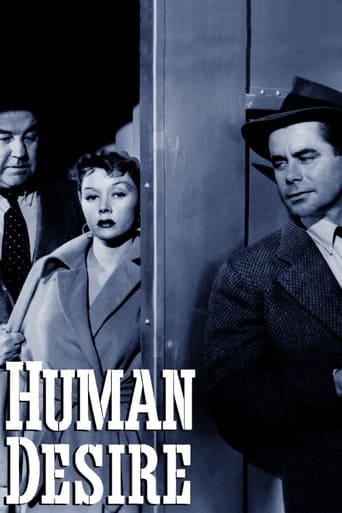


Human Desire
Jeff Warren, a Korean War vet just returning to his railroad engineer's job, boards at the home of co-worker Alec Simmons and is charmed by Alec's beautiful daughter. He becomes attracted immediately to Vicki Buckley, the sultry wife of brutish railroad supervisor Carl Buckley, an alcoholic wife beater with a hair-trigger temper and penchant for explosive violence. Jeff becomes reluctantly drawn into a sordid affair by the compulsively seductive Vicki. After Buckley is fired for insubordination, he begs her to intercede on his behalf with John Owens, a rich and powerful businessman whose influence can get him reinstated.
-
- Cast:
- Glenn Ford , Gloria Grahame , Broderick Crawford , Edgar Buchanan , Kathleen Case , Peggy Maley , Diane DeLaire


Similar titles

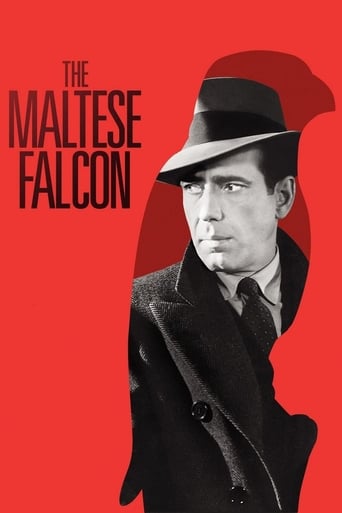
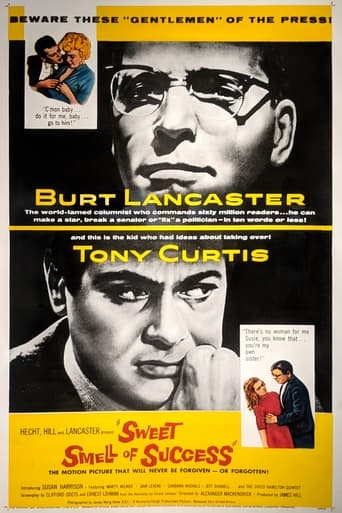
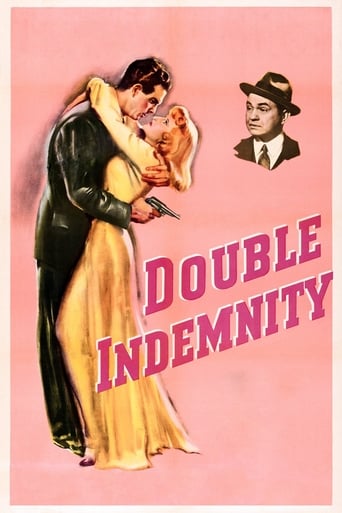
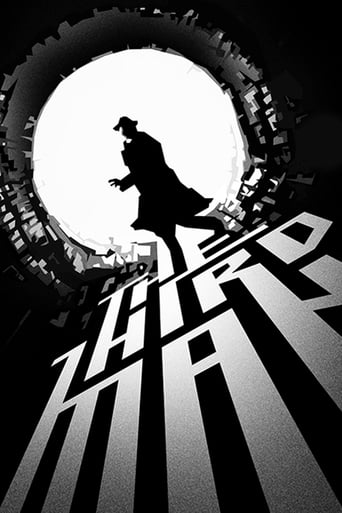
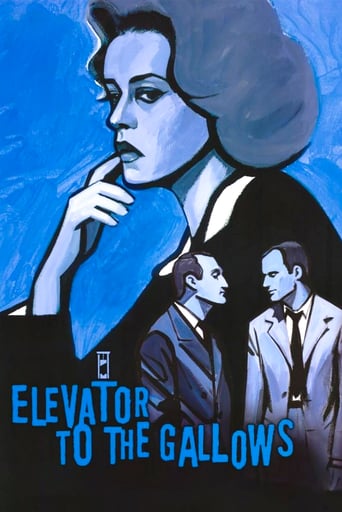
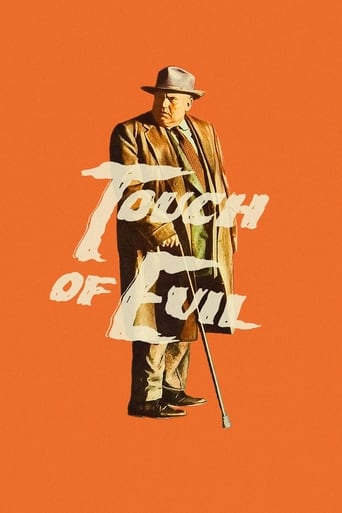
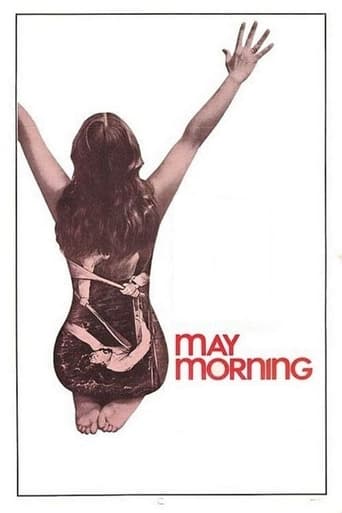
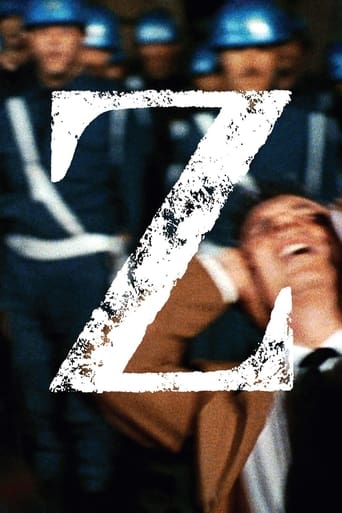
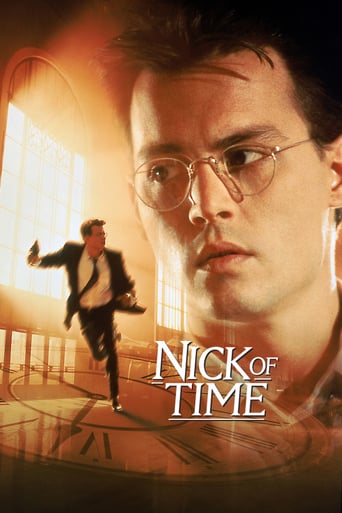
Reviews
Powerful
Fresh and Exciting
Admirable film.
The film never slows down or bores, plunging from one harrowing sequence to the next.
Dear Marlon Brando,I heard you rejected Human Desire because you were scandalized that the guy who made M was making this piece of trash. I agree with you. Sort of.The first half wasn't all that bad. Glen Ford always plays himself, you get Glen Ford in every single movie of his and not the character. I have always liked him. And Gloria Graham is terrific. She is not a conventional beauty but she oozes sex. I guess Broderick Crawford has done better roles than this one.The scenes in the train reminded me of another noir called "The Narrow Margin" which came out a couple of years before Human Desire. But the film never really goes anywhere after a certain point. All the whining and crying by the two female characters towards the end made it tough to watch. It was like a noir in the first half with the tough working class characters and their attitude towards life. The second half was like an intense weepie.All said and done, this film could have been named Horny Males or something.And Marlon, considering some of the films you did in the 50s and 60s ..... this film wouldn't have been all that bad a choice.Best Regards, Pimpin.(6/10)
First billing on Human Desire goes to Glenn Ford, but he's somewhat eclipsed by Gloria Grahame. Grahame as Vicky Buckley is a cross between a femme fa tale and a bullied and oppressed wife. While not a classic beauty she exudes a kind of striking combination of a sultry sexuality and a "girl next door" with a babyish voice to further complicate the juxtaposition. She most definitely can play the role she's given here standing toe-to-toe with both Ford and Broderick Crawford as her husband Carl. Vicky is at once damaged, devious, and extremely manipulative and Grahame delivers it in spades. Human Desire is a combination of film noir and a romantic drama. Named quite correctly the movie shows how certain innate desires can trip up otherwise solid people. Without haste the marriage between Carl and Vicky becomes a loveless match of wills. Even though Carl suspects Vicky of having an affair with the older wealthy John Owens he forces Vicky to meet him and ask for his influence in getting back the job Carl lost. This sets up Carl's rage when he once more accuses Vicky of a tryst with Owens as she was simply gone too long.In a jealous calculated murder plot Carl gets the upper hand on his wife with a note in order to lure Owens into a trap. It's implied he knows he is going to kill Owens while holding the letter framing Vicky. Carl will, thus, prevent Vicky from leaving for fear of being implicated in the murder.. But, instead of controlling his wife Carl is losing her to returning veteran and railroad engineer Jeff Warren played by Glenn Ford. Warren becomes intertwined in the whole mess by a kiss with Vicky Buckley prior to knowing who and what she is. Before he can figure out he is getting played, Warren decides to testify in an inquiry that he couldn't identify the passenger (Vicky) he may have witnessed, possibly involved in the murder of John Owens. Now, Jeff Warren is in deep being blinded by his budding love (i.e. lust) for Vicky, much to her design. Things get messier before Warren gets his own personal reality check as he truly contemplates murdering Carl Buckley to both save Vicky and have her for his wife. This plays out quite well as the love triangle of Carl, Vicky, and Jeff Warren comes to a critical mass. There's a good twist at the end when at least Vicky, who loses Warren, thinks she's, at least, free of Carl.While no classic, this is a solid movie with good elements of film noir and romantic drama. Director Fritz Lang may have been slumming just a little, though Grahame's performance stands tall. Ford is realistic as the otherwise "nice-guy" who gets snowed. Broderick, typically wooden, brings that unsympathetic bully quality needed for the dark matter to spring forth from. These three get nice support from Warren's fatherly co-worker Alec, played by the crusty character actor Edgar Buchanan (uncle Joe from Petticoat Junction fame) and his overly sweet and beautiful daughter Ellen played by Kathleen Case (Jeff's potential other love interest).This isn't a classic movie due to several factors such as less than stellar dialog and, perhaps, general lack of imagination. But, it is a quite strong film due to the strength of Grahame as Vicky Buckley in playing out of that age old story of a love triangle with a murder in the middle As such is gets a definite recommendation.
Unlike most of the reviews here, I see this films as a treatise on broken and betrayed love.First there is the innocent love of the family daughter who looks up to Jeff as the hero returned from the war. This love is betrayed by Jeff not being the man of her dreams, but rather somewhat proficient womanizer who acquires interest in Vicky, the wife of his work colleague Carl.Second there is the love of Vicki to her husband Carl, which is betrayed by Carl's stupid and insensitive character. Carl, having been fired from his job because of his rowdy nature, pushes Vicki against her will to 'negotiate' the job back through Vicki's former 'contacts' to a top level railroad employee Owens. Vicki refuses multiple times - a history of abuse is hinted between her and Owens. However insensitive Carl fails to catch the reasons of Vicki's refusal and pushes her against her will until she yields to her husband. Only when now disillusioned Vicki returns from a hours long 'negotiations' with her former boss and heads to the shower Carl begins to suspect something is wrong.Third, there is the brutal, dependent and jealous love of Carl to his wife Vicki. Carl, smitten by jealousy, develops a plan. He forces Vicki to play along by writing a letter summoning Owens to a secret rendezvous in a train sleeper carriage. There Carl murders him and takes Vicki's letter from the body to be used as a guarantee against her.Through Carl's actions love between them is broken. Consequently Vicki begins an affair with Jeff, who saw her in the train at the night of the murder. The relationship develops into love, with the pair meeting behind Carl's back at railroad yard shacks and Vicki's relative's apartment. However in a small town such an affair cannot be concealed. The ill-fated and ill-chosen desire causes suffering and alienation. A plan develops to rid Vicki of Carl - now a once again sacked drunk who drowns his sorrows at the local watering hole. But Jeff can't bring himself to kill such a defenseless man. He grabs the letter, unknown by Carl, and returns it to Vicki at the same time dumping her. Vicki, who is now free, pleads and cries for Jeff to take her, but he refuses coldly and walks away from the mess, while suspecting that Vicki has for the whole time only been using him.The definitive moment of the movie for me comes at the train car in which Vicki, now free but manifestly alone, plans to ride away. Carl stumbles in the car and just in the same way as Vicki moments ago he in a humiliated manner laments his love and need for her and pleads for her to stay, even offering to give her the incriminating letter (which she already has). But as Vicki had learned nothing. Just like Jeff walked away she too rejects Carl's desperate plea, similar to her own. When the train with Jeff in its cabin - dance tickets given to him by the employee's daughter in his hand - speeds in the distance, Carl strangles Vicki in the compartment.Love is actually not the Hollywood solution to everything and the force that makes one overcome every obstacle. Rather, it can be very ugly, confusing and depressing human desire.I'm giving this movie a rare 10/10. Aside from excellent directing and especially wonderful lighting (e.g. Jeff and Vicki in the rail yard shack: when you try to hide, you are actually right at the spotlight) I very much enjoyed Lang's interpretation of the source material. Unlike Zola's original, which seems nihilistic to me, Lang's interpretation is realistic and does not fall into unnecessary celebration of inhumanity. That is it's strength. Though the murky waters of depraved love abound, there is yet hope and a glimpse of true love in the form of the dance tickets in Jeff's hands.
Film noir is a mood, a state of mind in a film world. It doesn't just have to be guys with guns, nor is it just infidelity and murder. But it usually rests on dark streets and in rooms with the lights off, with sultry women, average Joes and Big Heavys who are the bane of any person's existence, and sometimes it's just based on the narration, the setting, the way a character stares at one another or holds on a kiss. Human Desire, Fritz Lang's update of Emile Zola's book La bete Humaine (and also made into the wonderful film of the same name by Jean Renoir, a kind of pre-noir example in the 30's), is drenched in noir, and it's a wonderful example of what could be done with the right actors - or seemingly the right ones all the way through - and the right setting. It's set among workers on trains, as an engineer, Jeff, played by Glenn Ford, comes back from Korea and is back a work, a nice but quiet type usually, and also works with Broderick Crawford's Carl. Carl is a big louse of a man, jealous as hell of his wife but contradictory in that he asks him to do a 'favor' in order to get his job back from his wife. She goes to see this boss-man, but Crawford ain't havin' it: he goes ahead and kills the guy on a train, and Glenn Ford's character suspects something, having seen Vicki come out of the same car. But he also kinda, sorta, falls for her, if only by a sudden kiss moment, and she tries to egg him on to 'get rid' of Carl, who has become a total drunk and waste after killing a man. Some guys just can't take it, but can Jeff go that far? And for a dame?Sounds like a book title (matter of fact it was at some point), but it's how Lang presents these characters, in shadows and among the grime of the trains and tracks, and those dark rooms, that make things interesting. It's also good that there's a side character here, Ellen, played by Kathleen Case, as a way of giving some pause from the main plot (she's a younger woman who takes a fancy to Jeff as he comes back from the East and has a kimono for her). Lang makes us wonder: is this dame Vicki Jeff's only choice? Hopefully not, but the dilemma makes for some great chemistry for the two actors, and the tension is ratcheted up as Jeff has to ponder taking the next step for Vicki, or to not, as Carl isn't a stranger to him and this isn't fighting in a war. Ford is fine in the role he's in, and Crawford gets to ham it up with his drunken a-hole of a husband who occasionally shows signs of regret (he's not all black-and-white morally, but as in noir has shades of grays). But with Grahame I wasn't totally sure about her performance, at least at first. She's playing something different than her previous Lang role in The Big Heat where she was just a full-on moll. Here she's a housewife, but one with a checkered past we don't know of entirely till near the final reel. She acts a little duplicitous, but I wasn't always believing her acting even if she looked the part of a femme fatale. It's a strange thing since she isn't bad in the role, just inconsistent, and it was mostly due to some good chemistry with Ford (who he himself is a little stiff in a non-bad-ass-villain role but stuff dependable) that I could believe her in the part.Lang also gets some moments for "pure" cinema, that is without much dialog and just the physical locations and scenes, like how Jeff just motions for a cigarette and drives away as the engineer on the train, or how he tracks Carl one night coming back from a bar drunk. And sometimes the body language and way shots are framed tells a lot about the disconnect of these people: in the aftermath of the murder, one night we see Carl and Vicki at home having dinner, very torn apart, and how they're placed in the house, separated by kitchen and living room or on other side, tells a lot about where they're at even when they don't say much. Things like that, or how Jeff and Vicki are lit outside by the tracks at night contemplating their love/lust for one another, is done with such emotion that is just fine.Other times there is some melodrama, and, again, Crawford does ham it up in some scenes to where it comes close to unintentional hilarity (the crowd I saw the movie with laughed at a few key moments that would've probably been dead-silent back in the day, but this may be more for the change in times than anything else). If it's not quite as great as Renoir's film it's that it's not aiming as high artistically, I think. Renoir's film is a tragic romance, while this is more of a B-thriller with some aspirations for high artistry. It's not to say it's a pale imitation of that film, but it's just different. Lang's world is a bit colder, more cynical, more un-trusting of what humanity is capable of except the occasional good and usually evil tasks. No one character in Human Desire gets off the hook (except maybe Ellen), but the varying degrees makes for a strong comment on post-war morality, a defining characteristic between Lang and Renoir's adaptations.In other words, Human Desire is cool and brutal and more than a bit sexy, and if it's not all great there's enough here for buffs to chew on.
